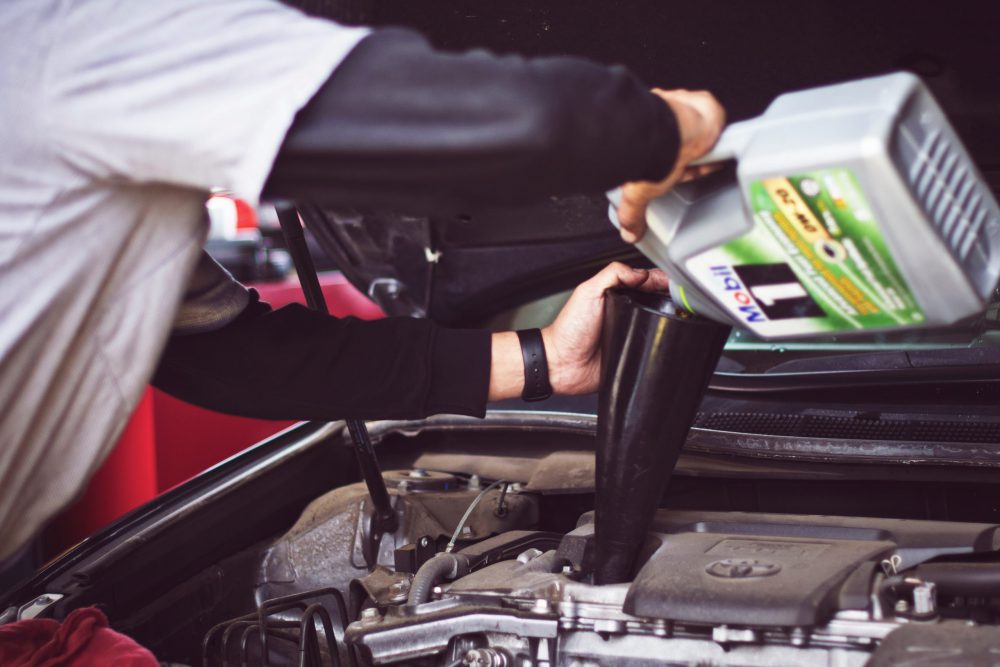
Nobody wants to deal with a breakdown. In fact, that may be the only thing every driver has in common.
It can be a significant inconvenience, cost you money, and it could even pose a danger to yourself, passengers, and others around you.
But, it’s not all doom and gloom. We have good news. There are some simple pre-drive checks you can do that will (hopefully) lower your chances of breaking down.
Lights
The first pre-drive check is a simple one. Like all good ideas, it starts with a light bulb.
Switching your lights on and ensuring no bulbs have blown is incredibly important, especially if you’re going to drive at night or during twilight hours.
Not only can you get pulled over for faulty lights, it’s also crucial that you can see where you’re going. Not spotting a pothole or suddenly clipping a kerb can cause havoc to your tyres (and potentially ruin a journey).
When testing your lights, check all the different functions, including full beam, brake lights, and your indicators. Don’t forget to check your fog lights as well – while these may be used a bit less, it’s good to know they’re functioning properly (especially before winter comes around).
If someone owes you a favour, get them to walk around your car while you test different lights. This’ll definitely speed up the process.
Tyres
Tyre trouble is one of the leading causes of breakdowns. Checking them regularly (especially before a long journey) can save you a lot of time and money in the long run.
Firstly, check the tread. The legal tread depth in the UK is 1.6mm, and if you drop below that, you can get a pretty hefty fine of up to £2,500 per tyre.
Most tyres have tread wear indicators on them. These small bars will be inside the tread and around 5mm long – if your tyre has worn to this point, get a tyre change booked in.
While checking the tread, ensure each tyre has no punctures, rips, bulges, or tears; if you find any irregularities, make sure you get that tyre changed.
Lastly, regularly check your tyre pressure. You can do this from home with a kit (purchasable from the Green Flag Shop) or by heading to a petrol station. Having the correct tyre pressure can prevent blow outs, lengthen the life of your tyres, and even help boost your mileage by reducing friction – win-win-win!
Fluids
Just like us, cars need fluids to keep them moving. So, keeping your vehicle’s fluid levels where they should be will give your car the best chance of running safely and efficiently.
With your bonnet up, check the engine oil, coolant, and windscreen liquid. For guidance on checking the coolant, visit our blog on overheating cars, but always check your vehicle manual if you’re unsure.
It’s also useful to keep the correct oil for your vehicle and some water in your car, just in case you ever need it.
Brakes
Unsurprisingly, being able to stop is a pretty crucial element of driving. So, it’s well worth checking your brakes.
In a safe area, bring yourself to a stop from 10, 20, and 30mph; if the pedal doesn’t feel smooth or you struggle to stop, get your brakes checked at a local garage. We can help you find a garage here.
As well as doing this simple test yourself, ask to get your brakes checked at any service you have between MOTs.
Battery
We deal with a lot of battery problems, so out of all these pre-drive checks, this one’s well worth a look.
For most cars, a battery-shaped light will show on your dashboard when you switch your car on. This light should disappear quickly, as it’s just letting you know that your car system is checking your battery. If the light comes on while you’re driving, there’s likely an issue and you should get it checked as soon as you can.
Batteries last around five to seven years, but you can help elongate that and look after your battery by driving your car for 20-minutes at least once a week. This will charge the battery and help decrease the chance of acid stratification, which is both when battery acid gathers at the bottom and also a cracking word in Scrabble.
One handy tip if you’re heading away for a while – make sure you give your vehicle a quick drive before you go and as soon as possible when you’re back. These simple pre-drive checks can help prevent a breakdown, but they can still happen. So, it’s important to have car breakdown cover in case of emergencies. If you need breakdown cover, we’re here to help.